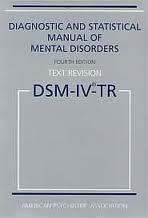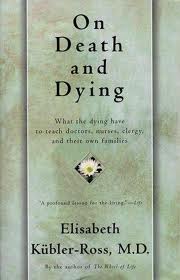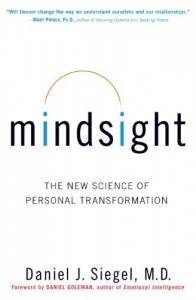2013
 Unless 2012 turns out like the movie (“2012,” that is), the year that follows should see the release of the latest version of the DSM, the big book of psychiatric diagnoses that mental health pros use as a guide to thinking about what’s going on with clients. You’re not your diagnosis, and you’re really not a diagnosis that hasn’t been approved and published. But, if you’re curious, proposed changes to the current DSM-IV-TR are posted at dsm5.org, and await your browsing. (A much quicker NYT article on the subject is here.) Enjoy.
Unless 2012 turns out like the movie (“2012,” that is), the year that follows should see the release of the latest version of the DSM, the big book of psychiatric diagnoses that mental health pros use as a guide to thinking about what’s going on with clients. You’re not your diagnosis, and you’re really not a diagnosis that hasn’t been approved and published. But, if you’re curious, proposed changes to the current DSM-IV-TR are posted at dsm5.org, and await your browsing. (A much quicker NYT article on the subject is here.) Enjoy.
Treating Chronic Pain
Back at Where the Client Is, a new interview with psychoanalyst Frances Sommer Anderson, PhD about treating pain the Dr. John Sarno way: By getting at underlying, unfelt emotion. Not mainstream at the moment, but look out. (The interview is intended for therapists, but is still readable.) Key:
For people who have great difficulty being aware of what they are feeling about what they are saying, I work intensively on this in each session. I recommend that they take a “feeling inventory” several times during the day and evening: Ask yourself, “What am I feeling about the events
that happened during the past hour? How did I feel when my supervisee didn’t meet the deadline and casually brought the work into my office without acknowledging that it was late? How did I feel when our nanny called to say that she had an emergency and had to leave immediately, possibly indefinitely? How did I feel when our 16 year-old son showed up two hours past his curfew, undeniably drunk?” At the beginning of therapy, some people need to take this inventory once every hour.
As we are doing this “emotion detection” work inside and outside the sessions, we are also tracking pain levels as well as presence and absence of pain. This strategy is aimed at making links between emotions and pain symptoms.
The rest of the interview is here.
On “On Death and Dying” (and Others)
 Another in case you missed it, this one from the New Yorker: “Good Grief: Is there a better way to be bereaved?” looks at how we cope with death and loss.
Another in case you missed it, this one from the New Yorker: “Good Grief: Is there a better way to be bereaved?” looks at how we cope with death and loss.
One autumn day in 1964, Elisabeth Kübler-Ross, a Swiss-born psychiatrist, was working in her garden and fretting about a lecture she had to give. Earlier that week, a mentor of hers, who taught psychiatry at the University of Colorado School of Medicine, had asked her to speak to a large group of medical students on a topic of her choice. Kübler-Ross was nervous about public speaking, and couldn’t think of a subject that would hold the students’ attention. But, as she raked fallen leaves, her thoughts turned to death: Many of her plants, she reflected, would probably die in the coming frost. Her own father had died in the fall, three years earlier, at home in Switzerland, peaceful and aware of what was taking place. Kübler-Ross had found her topic. She would talk about how American doctors—who, in her experience, were skittish around seriously ill patients—should approach death and dying…
Ecopsychology
 In case you missed it, last weekend’s NYT Magazine asks, “Is There an Ecological Unconscious?”
In case you missed it, last weekend’s NYT Magazine asks, “Is There an Ecological Unconscious?”
There are numerous psychological subfields that, to one degree or another, look at the interplay between human beings and their natural environment. But ecopsychology embraces a more revolutionary paradigm: just as Freud believed that neuroses were the consequences of dismissing our deep-rooted sexual and aggressive instincts, ecopsychologists believe that grief, despair and anxiety are the consequences of dismissing equally deep-rooted ecological instincts…
Cut Off from the Neck Down
 A big excerpt from Daniel Siegel’s “Mindsight” is up at wheretheclientis.com. Dr. Siegel is a prolific brain science-meets therapy-meets mindfulness writer, based at UCLA. PR says:
A big excerpt from Daniel Siegel’s “Mindsight” is up at wheretheclientis.com. Dr. Siegel is a prolific brain science-meets therapy-meets mindfulness writer, based at UCLA. PR says:
• Is there a memory that torments you, or an irrational fear you can’ t shake?
• Do you sometimes become unreasonably angry or upset and find it hard to calm down?
• Do you ever wonder why you can’t stop behaving the way you do, no matter how hard you try?
• Are you and your child (or parent, partner, or boss) locked in a seemingly inevitable pattern of conflict?What if you could escape traps like these and live a fuller, richer, happier life? This isn’t mere speculation but the result of twenty-five years of careful hands-on clinical work by Daniel J. Siegel, M.D…Using case histories from his practice, he shows how, by following the proper steps, nearly everyone can learn how to focus their attention on the internal world of the mind in a way that will literally change the wiring and architecture of their brain.
A full chapter–“Cut Off from the Neck Down”–is here.
L.A. Therapists on Twitter
In the not-so-long-ago olden times, people looking for therapy would generally get a referral from someone they knew, go to the therapist, and get therapy. Simple as that.
Things are different. Now you can shop online for a therapists via various directories (e.g., Psychology Today), therapist websites, blogs, and, if you like, on twitter.
Therapists tend to use their twitter 140 for inspirational quotes, links to blog posts, therapy news, and generalities. You don’t really get to know them by what they tweet–it’s primarily promotional.
What are Los Angeles therapists tweeting? I was curious, so I put together this list: Los Angeles therapists on twitter.
You can choose a therapist based upon what they tweet, blog about, or write on their website…but is it the best way to go? Probably not. Will a therapist understand you? Will you feel heard, helped, listened to? To figure that out, the old-fashioned face-to-face still trumps: Get into the office, get talking, and see how it goes…
Show Business Survival Kit: Patience
Wisdom from therapist Dennis Palumbo on the Huffington Post:
Nowadays, few writers are advised to cultivate patience. There’s a lot of pressure to just write, to get it out there, to strive mightily to come up with the next high concept (“You got anything like Iron Man?” “We’re looking for another Harry Potter-type book.” “How about a police procedural show on Mars?”). We live in a competitive, consumerist culture, and there’s tremendous urgency to perform.
A virtue like patience—sort of in the same homey, humble category as gumption—can get lost in the manic rush to produce material.
The rest of the piece is here.
How Other People’s Unspoken Expectations Control Us
From a “10 Brilliant Social Psychology Studies” series on PsyBlog:
A good exercise for learning about yourself is to think about how other people might view you in different ways. Consider how your family, your work colleagues or your partner think of you.
Now here’s an interesting question: to what extent do you play up to these expectations about how they view you?
This idea that other people’s expectations about us directly affect how we behave was examined in a classic social psychology study carried out by Dr Mark Snyder from the University of Minnesota and colleagues (Snyder et al., 1977)…
Continue reading here.
Science and the Profile Picture
For online dating site users, here’s a statistical analysis of picture styles (smiling, looking at the camera, clothed, doing something interesting, etc.) versus number of initial contacts. May be vaguely useful, and for others, vaguely entertaining.
To write this piece, we cataloged over 7,000 photographs on OkCupid.com…In looking closely at the astonishingly wide variety of ways our users have chosen to represent themselves, we discovered much of the collective wisdom about profile pictures was wrong.
Continue reading the 4 Big Myths of Profile Pictures.
Meditation Bliss-Ninnies
On theme: Marcia Lucas, PhD blogs a response at Psychology Today re meditation as zoning out.
Here’s the polite version of a question I received recently about my support of mindfulness meditation as a practice for well-being in relationships:
Why are you encouraging people to zone out? Sitting around pretending they’re above it all, and avoiding real feelings? Who wants to be in a relationship with a self-involved bliss-ninny?
Continue reading the post here.